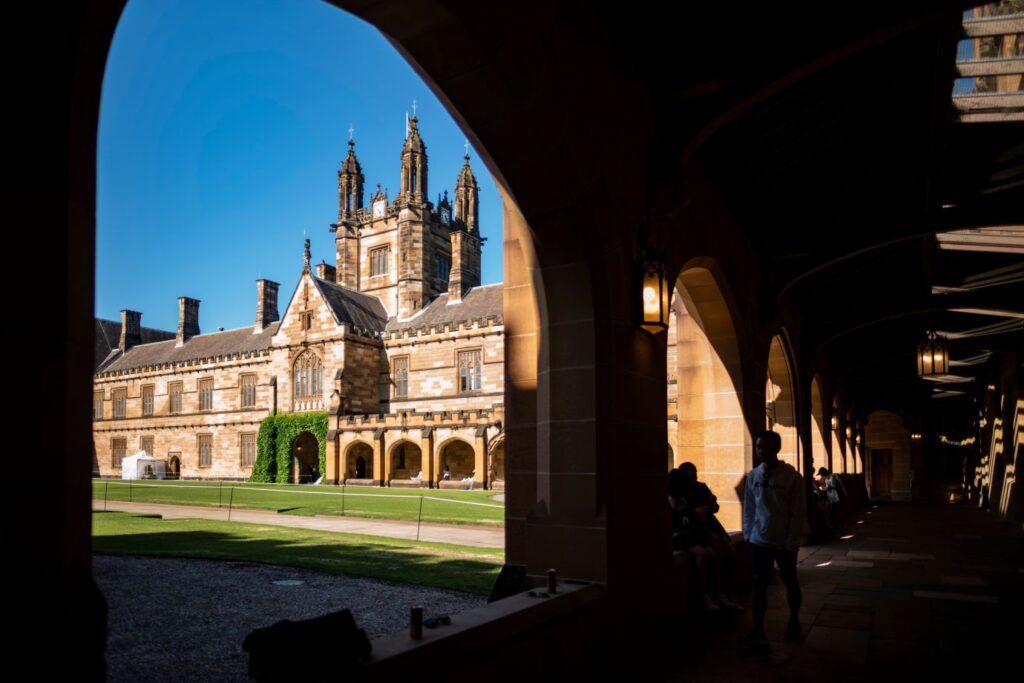Universities will soon need to take steps to prevent and better respond to sexual violence on their campuses, under a new national code that has been passed into law.
Labor passed legislation to establish a mandatory National Higher Education Code to Prevent and Respond to Gender-based Violence on Monday afternoon.
The code will require universities and university-operated student accommodation providers to take steps to prevent gender-based violence, including through education and training to students and staff.
Compliance with the code’s obligations will be monitored and enforced, with penalties for non-compliance.
The code has become law after years of advocacy from students, including survivors of sexual violence and advocacy groups.
One in 20 students have been sexually assaulted since they started university and one in six students have been sexually harassed, according to the 2021 National Student Safety Survey.
“How a survivor of violence is supported by their university has lifelong consequences. Victim-survivors must be heard and supported and universities must make every effort to stop violence in the first place,” Minister for Social Services Tanya Plibersek said.
“The National Code will make this a reality. It will hold all higher education providers to consistently high standards to proactively prevent and respond to gender-based violence.”
CEO of Our Watch Patty Kinnersly said the new national code for universities was a crucial shift that places emphasis on organisational and cultural change.
“No-one should ever fear for their safety where they work, study, or live,” Kinnersly said.
“Gender-based violence can [be] prevented through whole-of-institutional change that addresses the drivers of violence such as gender inequality, disrespect and rigid gender stereotypes.
“This looks like teaching and implementing respectful relationships education, student and staff support, a focus on accurate data and reporting; and trauma-informed, person-centred responses.”
The national codes comes after the government established a National Student Ombudsman earlier this year, which works to investigate student complaints.
Education Minister Jason Clare said not enough has been done to address sexual violence in our universities and for too long students haven’t been heard.
“Universities aren’t just places where people work and study, they are also places where people live, and we need to ensure they are safe,” he said.
“We also need to take steps to stop sexual violence from happening in the first place.
“And when the worst does happen, staff and students should get the response and support they deserve, every time.”
Calls for expansion into schools
CEO of Consent Labs Angelique Wan says the new national code has been direly needed in the university and tertiary education sector for years.
“Seeing it pass into legislation is a constructive step towards acknowledging sexual violence happens in university settings, and setting standards that help to prevent it from happening for today’s and tomorrow’s students,” Wan tells Women’s Agenda.
Wan is calling for the code to be expanded more broadly into the education sector, starting with high schools.
“Unfortunately, we have more than enough evidence that shows sexual violence is still a major issue in high school environments, and having a national code for schools would help educators, students, and carers understand and act on harmful behaviours,” Wan said.
“There needs to be alignment and accountability for student safety and sexual violence prevention across the entire education industry.”
“It’s important to recognise gender-based violence is deeply entrenched in society. It’s not an issue specifically affecting a certain industry or part of the country – it’s a nationwide crisis and the work is nowhere near done.”
Wan says there are inconsistencies with how consent and respectful relationships education is being delivered for children in years K to 10.
“There are inconsistencies with how this education is delivered based on teachers’ skillsets and training opportunities, available funding, access to experts, and recognition of the importance of an evidence-based approach. Our educators need more support in delivering high quality and best practice CRRE and contributing to preventative measures against sexual violence,” she said.

“The National Code for universities presents a tangible opportunity to codify a whole-of-institution approach to preventing and responding to sexual violence, which so far has been optional for schools apart from providing CRRE,” Wan says.
“The Code provides a blueprint for a holistic engagement with appropriate structures via workplace policies, supported by a top-down approach starting with leadership teams and staff members. These elements are critical to making much needed change in schools.”
If you or someone you know is experiencing, or at risk of experiencing, domestic, family or sexual violence, call 1800RESPECT on 1800 737 732, text 0458 737 732 or visit 1800RESPECT.org.au for online chat and video call services.
If you are concerned about your behaviour or use of violence, you can contact the Men’s Referral Service on 1300 766 491 or visit http://www.ntv.org.au.


